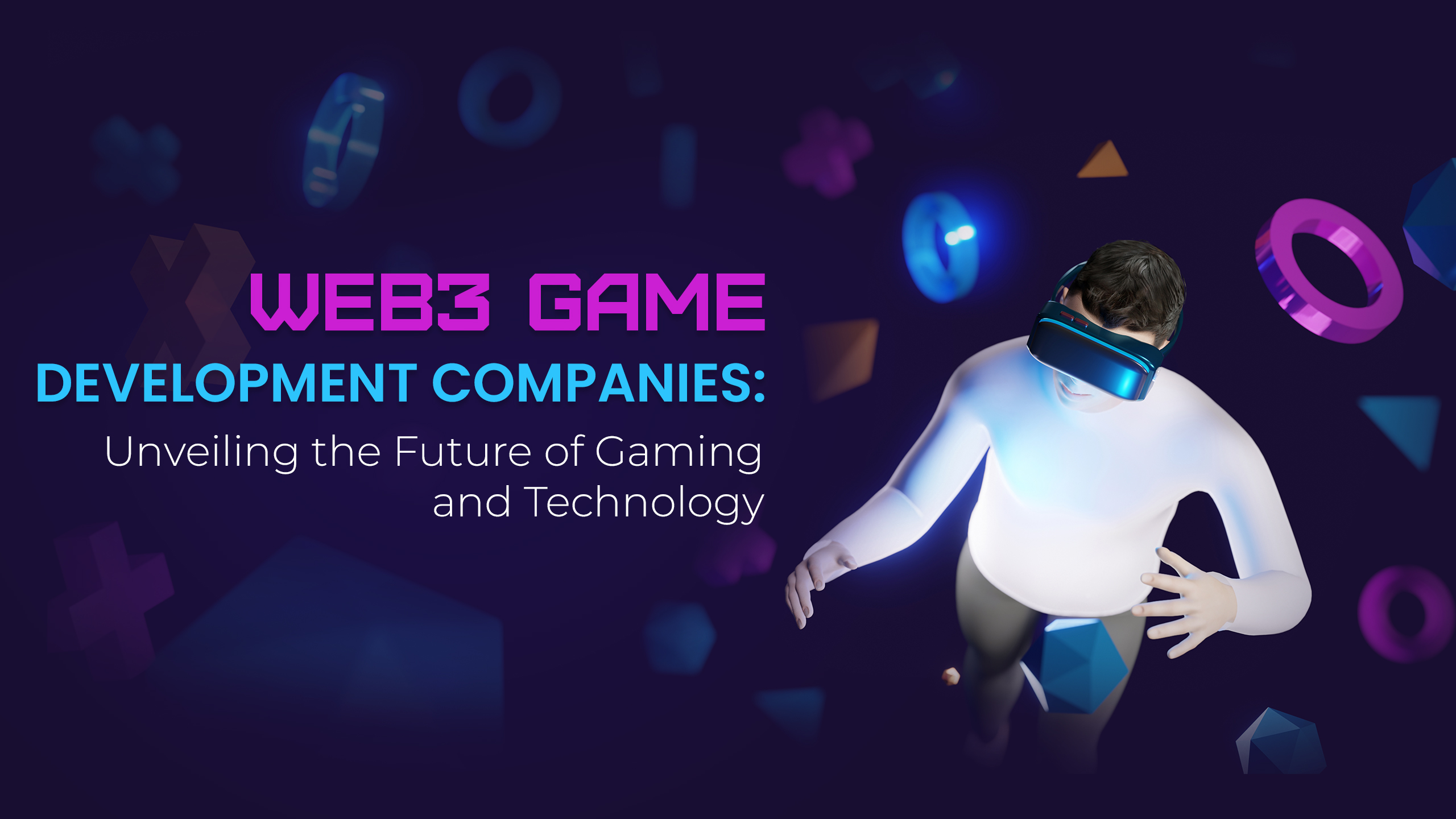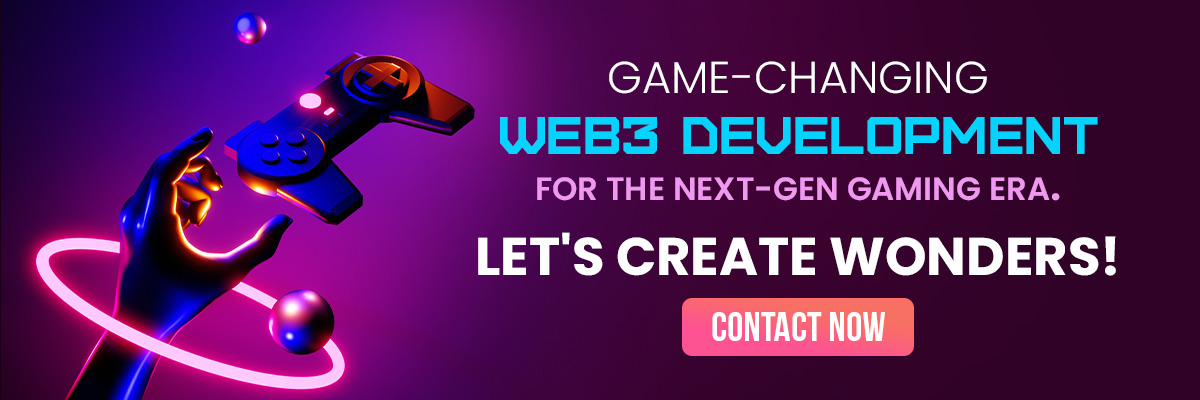Introduction
In the changing world of technology, the rise of Web3 has opened up opportunities, for innovative advancements especially, within the gaming sector. This article delves into the complexities of web3 game development. Highlights the role that web3 development companies play in this process.
Understanding Web3 Game Development
Embracing the Decentralized Revolution
The concept of decentralization in the gaming industry has sparked a revolution, paving the way for a new era where players can exercise extraordinary control over their in-game assets. This article delves into the phenomenon of web3 game development, uncovering the shift towards empowering players and discussing the profound impact it has on the gaming ecosystem.
Incorporating Blockchain for True Ownership
Explore the incorporation of blockchain technology into the world of gaming which guarantees ownership of virtual assets. We will delve into the realm of web3 game development and its utilization of contracts to authenticate and protect in-game items, creating a climate of trust among players.
NFTs in Gaming: A Paradigm Shift
NFTs have revolutionized the realm of gaming, bringing about a paradigm shift in web3 game development. These Non-Fungible Tokens have proven to be a game-changer, introducing novel concepts such as unique in-game items and verifiable digital scarcity that are reshaping the gaming landscape.
The Role of Web3 Development Companies
Navigating the Complexities
Taking a dive into the tasks undertaken by web3 development companies, ranging from creating gaming ecosystems to implementing blockchain solutions, these companies have a significant impact on shaping the future of gaming.
Collaborative Innovation
Examining the aspect of web3 development companies. This section explores how partnerships and collaborations fuel innovation. Discover real-life instances of endeavors that have propelled the gaming industry into realms.
Building Trust Through Transparency
Explore how web3 development companies prioritize transparency, security, and user trust. Uncover the steps taken to guarantee a gaming experience of restrictions imposed by centralized entities.
Latest Web3 Game Development Trends of 2024
- Shift from Play-to-Earn to Play-and-Own: Moving away from just earning tokens, players will seek meaningful ownership and control over in-game assets like NFTs. Think land in a virtual world you can develop and sell, or unique weapons that enhance your character’s power.
- DAO Governance: Player-driven communities built around DAOs (Decentralized Autonomous Organizations) will shape game development and decision-making, creating a more participatory and collaborative experience.
- Interoperable Game Universes: In-game assets and characters will move seamlessly between different blockchain-based games, blurring the lines between individual titles and creating a more interconnected gaming ecosystem.
Conclusion
As the world of web3 game development continues to reshape the gaming industry, Web 3.0 India is at the forefront of innovation and empowering players. By incorporating decentralization, technology, and collaborative efforts, there are possibilities for revolutionary gaming experiences. Embrace the future envisioned by Web 3.0 India, where cutting-edge advancements converge to create gaming landscapes that set industry standards. The era of decentralized and player-focused gaming experiences has finally arrived, with Web 3.0 India leading the way into this frontier.
FAQs
1. What is Web3 game development?
Web3 game development is the process of building decentralized games that run on a blockchain network. In contrast to traditional online games, Web3 games offer players true ownership of in-game assets through non-fungible tokens (NFTs), promote decentralized governance, and often implement play-to-earn mechanisms.
2. How are Web3 games built?
Web3 games are built using a variety of tools and technologies, including:
- Blockchain networks: Ethereum is the most popular blockchain platform for Web3 game development, but other chains such as Solana, Polygon, and Avalanche are also gaining traction.
- Smart contracts: Smart contracts are self-executing contracts that are stored on the blockchain. They are used to implement game mechanics, such as asset ownership, transactions, and rewards.
- NFTs: NFTs are unique digital assets that can be used to represent in-game items such as characters, weapons, and land.
- Cryptocurrencies: Cryptocurrencies are used to pay for in-game transactions and rewards.
3. Is Web3 the future of gaming?
Web3 has the potential to revolutionize the gaming industry by giving players more control over their gaming experience and allowing them to earn money from their gameplay. However, it is important to note that Web3 gaming is still in its early stages of development, and there are a number of challenges that need to be addressed before it can go mainstream.
4. What are Web3 companies?
Web3 companies are companies that are building products and services for the decentralized web. This includes companies that are developing blockchain infrastructure, Web3 games, and other decentralized applications.
5. What are Web3 development services?
Web3 development services are companies that provide assistance to businesses and individuals who are building Web3 applications. This includes services such as smart contract development, NFT creation, and blockchain integration.





